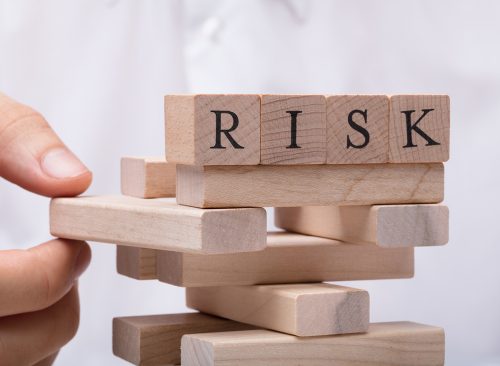Not Saving Enough for Retirement Among Regrets for People Over 50
...and how you can avoid them.

Having regrets in life is something everyone struggles with. No matter how many goals you’ve conquered and accomplishments you’ve achieved, it’s normal to kick yourself over a choice you wish you made differently. This is never more true than when you’re over 50. The choice between career and personal fulfillment surfaces as a poignant reflection, urging those of this age to seize the reins of their own happiness. Saving for retirement, spending quality time with family, embracing calculated risks, setting meaningful goals, cherishing life’s little moments, forging a healthy bond with food—each reveals itself as a crucial piece of the redemption puzzle. While you can’t go back in time to change things, you can see the mistakes and make other choices moving forward. According to experts we spoke to, here’s the most common regrets people have over 50 and how you can avoid them.

Dr. Paul Hokemeyer, a licensed marriage and family therapist and author of Fragile Power: Why Having Everything Is Never Enough says, “Life can be hard, scary and chaotic. It can make us feel we need to grow up into adults where a sense of play and adventure is unsafe and a liability. In fact, the opposite is true. Living life through a sense of wonder and as a comedy rather than tragedy, enables us to meet life’s challenges with resilience and grit.”

Dr. Hokemeyer tells us, “Thinking that power, property and prestige will carry you through the briar patch of aging. Sure, these things can provide for physical comforts and great medical care, but they won’t provide for the emotional comforts that make the aging process rich and rewarding.”

People believe that after a certain age you are who you are, but Dr. Hokemeyer says that’s not necessarily true. You can always keep learning and growing no matter what age if you don’t limit yourself. People think, “you can’t teach an old dog new tricks. You can; and in fact, neuroimaging shows us that old dogs learn really, but really well. So pick up that tennis racket or take that art history class that’s been calling for your attention. Your brain is hungry for the opportunity to learn. Feed it.”

Having a healthy relationship with money is vital, Jen Reid, financial planner and founder of BASE Financial Planning says. “Most people assume once they get $X dollars in their bank account or are making $X/year they will finally feel better about their finances, and that eventually It will help fix all their problems. The truth is if you are not working on your emotions around money, understanding why you impulsively buy or excessively save money, it will not change once you reach that pinnacle point you think will change everything. Money has more to do with our upbringing and feelings than it does around the actual numbers.”

When it comes to managing your finances, Reid tells us one of the biggest regrets she sees when reviewing portfolios is not people not understanding the fees they’re charged by their financial advisor until it’s too late. “The financial service industry is tricky. Very few people actually understand that fees, expenses and high commissions can be avoided but because no one talks about it very few people have an understanding of what that is actually going to cost them in the long run. You should be paying your financial advisor a flat rate $/Hr or $/Year fee – not a percentage of your net worth.’ Reid adds, “This system is established to put more money in your financial advisors paycheck and you don’t even see the money come out, you could be paying hundreds of thousands of dollars up to millions that should be in your portfolio. You don’t pay your mechanic, fitness coach or cleaners a percentage of your net worth – so you shouldn’t be paying your advisor that either. Too many people regret not understanding this and losing so much money because they didn’t pay attention.”

It’s easy to think when we’re young and healthy that we’re invisible, but we’re not. Not paying attention to our well-being until there’s a health problem is a common regret, Sue May, menopause and Integrative Wellness coach tells us. “As we get older we realize that the old cliche is true; we have to put on our own oxygen masks first in order to truly be able to be our best for those around us. When we are over 50 we realize that prioritizing our health is not only good for us, but our family as well. We know that life won’t stop and we have to start now, especially if we still want to live our “golden years” as active, vibrant, happy, and helpful humans.”

Ever notice how it seems like we’re kinder to everyone, but ourselves? We’re our own worst critic and that can be damaging over time. Overwhelmingly we’ve been taught that we need to “hold ourselves accountable” and for some reason that’s often equal to berating ourselves,” Bonnie Scott, therapist and founder of Mindful Kindness Counseling says. “My clients over 50 often talk about how they wish they had been taught self-compassion and that would have made them more able to tolerate losses or setbacks. We can be compassionate to ourselves and still have expectations; those aren’t mutually exclusive. Folks over 50 seem to be more aware of that false dichotomy and simultaneously wish they had seen it sooner.”

Having a successful career is important and can feel validating, but it’s not everything, which many regret later on because they realized they put aside personal wants and needs for financial gain instead of having balance. “The best thing to do moving forward is to be intentional with your time and do the things that make you happy,” Daniel Rinaldi, therapist, life coach and founder of Live Your F’N Life says. “Life is too short to sacrifice your happiness for someone else’s gain. Go live a full life and leave nothing to regret. You won’t care when all is said and done if you were employee of the month. However, making sure you are happy and feel personally fulfilled will last a lifetime.”

Retirement comes before you know it and many aren’t prepared for their golden years. Lawrence Sprung CFP and Founder at Mitlin Financial and Author of Financial Planning Made Personal says this is a huge regret he often sees and offers this advice. “Starting early is so key to being successful in saving money for retirement. It allows you to put less away over a shorter period of time while utilizing the tremendous benefits of compound interest. In my book, Financial Planning Made Personal, we showcase two people who are saving for retirement.” He explains, “The first person starts saving $1000 per year and increases it $200 every year after that through the age of 45 and never contributes again. The second person starts saving $6000 per year and increases it by $1000 per year after that through the age of 65. In the end, at age 65, the first person has invested a total of $91,000 and has an account value of $1,948,104 while the second person has invested a total of $336,000 and an account value of $559,444. This hypothetical assumes an annual return of 10%. The point is that starting early can have significant benefits towards accumulating assets for later in life removing this regret.”

It can be hard to strike a balance between working and spending time with your family. It’s challenging because if you don’t work enough it can be difficult to provide, but if you work too much then you never see your family. “One of the most common regrets that people over 50 have is not spending enough time with their family,” Dr. Ketan Parmar, a Psychiatrist and mental health expert at ClinicSpots tells us. “This regret can be felt even more acutely in later years as people may have seen their own parents age and pass away, leaving them reflecting on missed moments. The stress of modern life often means that there is little or no time left to spend quality time with our loved ones. We may focus too much on working long hours or pursuing goals that we forget to make time for those who matter the most.”

Taking risks in life can pay off and be rewarding and Ian Jackson, LPC-MHSP, LMHC, NCC Clinical Director at Recovery Unplugged says people who don’t take chances often regret it. “Many people regret not taking more risks in their lives, whether it’s trying something new or leaving a comfortable job to pursue a greater challenge.. Taking chances when you’re younger can open up possibilities that you wouldn’t otherwise have had. Learning how to take calculated risks is an important part of life that many people regret not doing sooner.”

Goals are important to have and “provide us with direction, purpose, and meaning,” Jackson explains. For people who don’t set goals, they end up regretting it, he says. “Setting realistic goals and striving to achieve them can bring satisfaction and fulfillment in life. Furthermore, it’s important to revisit those goals periodically so that you can stay on track with your ambitions.”

Taking joy in life’s small, but meaningful things is something many don’t take time to do. “Whether it’s spending too much time worrying about work or getting wrapped up in everyday stresses, many people look back on their 50s and wish that they’d taken more time to appreciate the small moments like watching a sunset, walking in nature, or having coffee with friends,” Jackson says. “Taking the time to enjoy these things can help bring meaningfulness and joy into our lives.”

Having a good relationship with food is important and Dr. Gabriela Rodríguez Ruiz, MD PhD FACS a board-certified bariatric surgeon at VIDA Wellness and Beauty says it’s a common regret. “Many people over 50 have not taken the time to understand and address their eating habits, which can lead to health issues as they age. When we’re young, we usually think it’s okay to eat whatever we want without considering the long-term consequences. Our metabolisms are typically faster when we’re younger, so the effects of unhealthy eating habits may not be as visible until later in life.” She adds, “As people get older, that’s only when they start to realize that their diet and eating habits have been affecting their health all along. They may resort to unhealthy methods to try and lose weight and reverse any damage, like crash dieting or taking diet pills, which can have serious repercussions on their health.”

Balance is everything and while it’s good to strive for the stars, Rachel Fleischman, Licensed Psychotherapist and Social Worker, Speaker and the founder of Dance Your Bliss and Bliss Counseling explains why it’s unhealthy to strive for the wrong things. “We think that extrinsic things will bring us boundless joy – those things being power, status, wealth, fame, shiny things…We want a little of the feeling which is evanescent.” She adds, “Now, notice just how quickly we lose our satisfaction with our striving. We can get off the treadmill! Make a reverse- bucket list and take some time to see what’s really important to you. The next time you have a want, check-in with yourself. Ask yourself, “Why do I want this? Is it for me, or am I wanting to show off a bit, and perhaps look fancy? Did the last big shiny toy make me happy?” I have worked with hundreds of people, and those that got the most extrinsic things end up being more dissatisfied than those not on the treadmill. This is the Striver’s Curse.”














